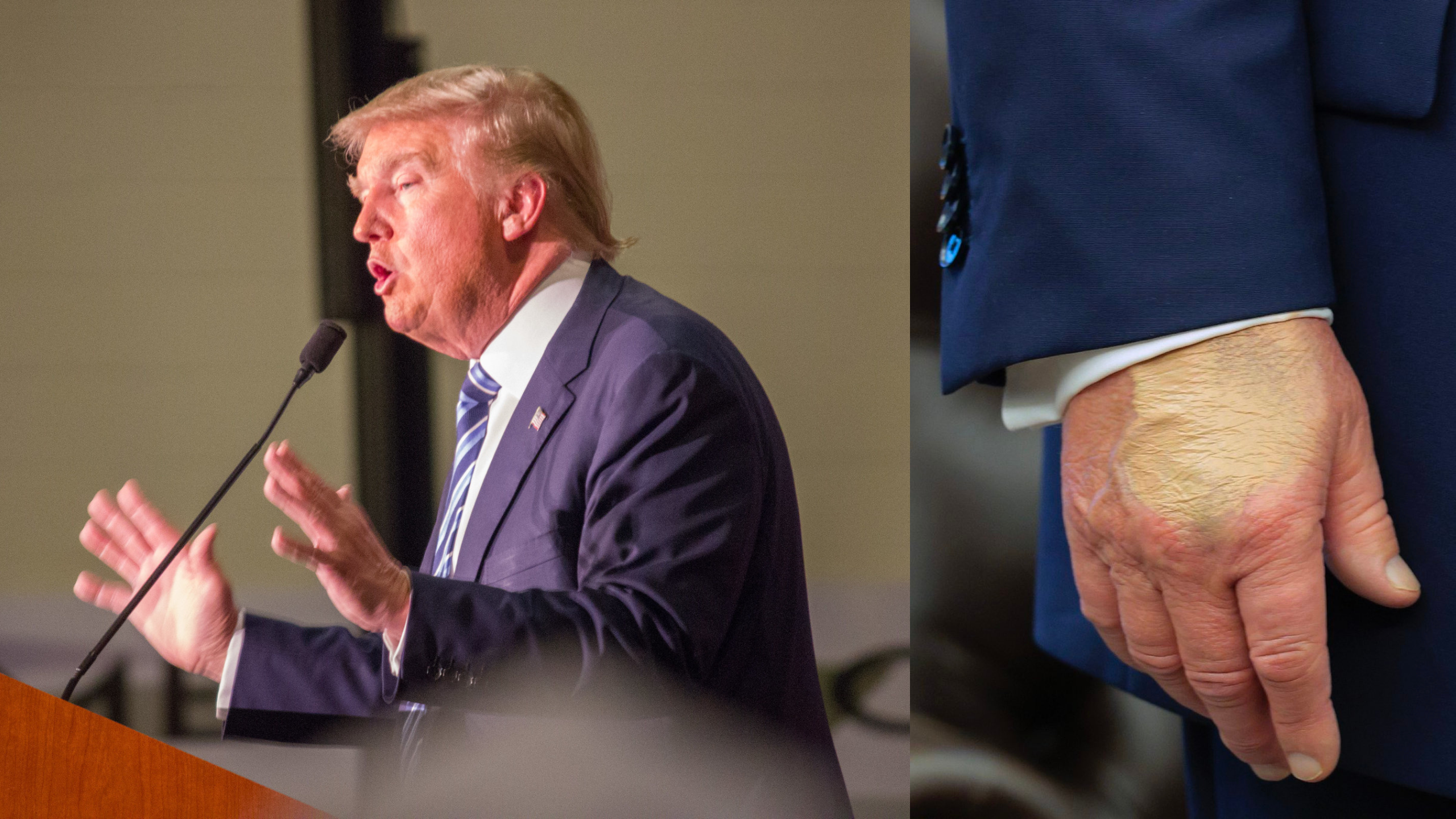Politics
Claims of Trump’s Imminent Death from Illnesses Debunked

A controversial video circulating on social media has falsely claimed that Donald Trump has only six to eight months to live due to chronic kidney disease (CKD) and congestive heart failure (CHF). The alarming assertion has been widely discredited, as the individual speaking in the video is not a licensed physician, and there is no credible medical evidence to support these claims.
The video first emerged on Reddit and quickly spread to other platforms, capturing the attention of viewers. In the full version, the speaker identifies himself as a physical therapist rather than a medical doctor. Shortened clips misrepresent this detail, leading many to believe a qualified physician was making dire predictions about Trump’s health. As the video gained traction, some social media users exaggerated the claims, with posts on TikTok suggesting Trump had only “four days to live.”
Fact-checking organisations, including PolitiFact, have categorically dismissed these assertions as unfounded. They highlight the importance of scrutinising the reliability of medical information, particularly when it pertains to high-profile individuals.
According to The Washington Post, official health updates from the White House in July indicated that Trump had been diagnosed with chronic venous insufficiency (CVI). CVI is a condition where veins in the legs struggle to efficiently return blood to the heart, often resulting in swelling. The NHS notes that this condition is common among older adults and is generally manageable rather than life-threatening.
Trump’s physician, Dr. Sean Barbabella, confirmed that the diagnosis was benign and specifically ruled out heart failure, kidney disease, arterial problems, and other systemic conditions. Following a medical assessment at Walter Reed in April 2025, Trump was described as being in “excellent health” and “fully fit for office,” according to BBC News.
Speculation surrounding Trump’s health intensified due to images showing him with swollen ankles and bruised hands. Many social media users mistakenly interpreted these signs as indicators of serious health issues. However, the White House clarified that the swelling was attributed to CVI, while the bruising was explained as a result of frequent handshakes, combined with Trump’s use of aspirin as a preventive measure.
Experts in misinformation stress that exaggerated claims spread rapidly on social media, often designed to provoke emotional responses. Predictions claiming that Trump had “six months” to “four days” to live lack any medical basis and serve as examples of how rapidly misinformation can proliferate.
The assertion that Donald Trump has only six to eight months to live due to CKD and CHF is unequivocally false. This misleading narrative originated from a misrepresented video and does not represent medical authority. Official health records confirm that Trump has a minor circulatory condition but no evidence of kidney or heart failure.
In an environment rife with speculation and viral claims, the truth remains clear. Trump’s health, as confirmed by his physician, is stable. This incident underscores the dangers of consuming partial information and selective editing, which can create unwarranted alarm.
-

 Health1 month ago
Health1 month agoFiona Phillips’ Husband Shares Heartfelt Update on Her Alzheimer’s Journey
-

 Health1 month ago
Health1 month agoNeurologist Warns Excessive Use of Supplements Can Harm Brain
-

 World1 month ago
World1 month agoCole Palmer’s Cryptic Message to Kobbie Mainoo Following Loan Talks
-

 Entertainment3 months ago
Entertainment3 months agoLove Island Star Toni Laite’s Mother Expresses Disappointment Over Coupling Decision
-

 Entertainment2 months ago
Entertainment2 months agoMajor Cast Changes at Coronation Street: Exits and Returns in 2025
-

 Entertainment2 months ago
Entertainment2 months agoMasterChef Faces Turmoil as Tom Kerridge Withdraws from Hosting Deal
-

 World2 weeks ago
World2 weeks agoMassive Sinkhole Opens in Bangkok, Swallowing Cars and Causing Chaos
-

 World3 weeks ago
World3 weeks agoMichelle Tsiakkas Opens Up About Jamie Borthwick Before BBC Exit
-

 Lifestyle2 months ago
Lifestyle2 months agoEngland Flags Spark Controversy This Summer: A Cultural Debate
-

 Entertainment3 months ago
Entertainment3 months agoWoman Transforms Life with Boot Camp, Losing Nearly 9 Pounds in a Week
-

 World1 month ago
World1 month agoCoronation Street’s Asha Alahan Faces Heartbreaking Assault
-

 Entertainment3 months ago
Entertainment3 months agoColeen Nolan Reflects on Family Tragedy and Reconciliation









